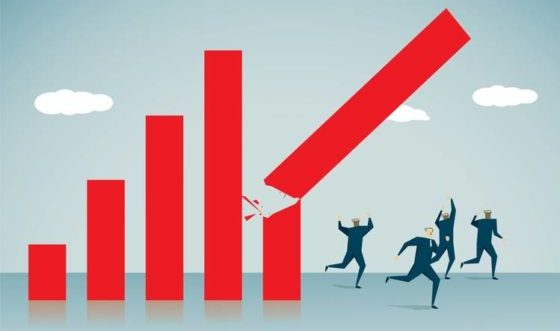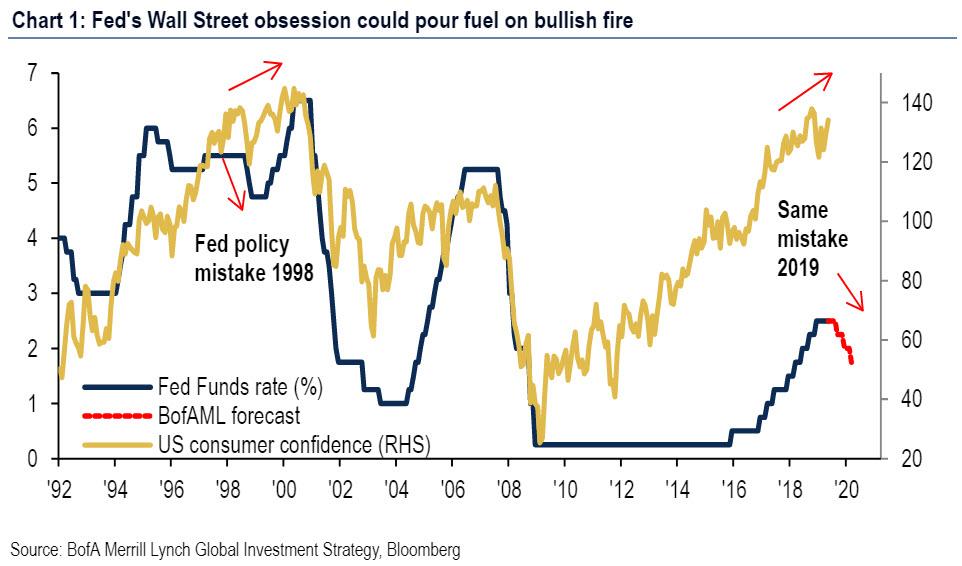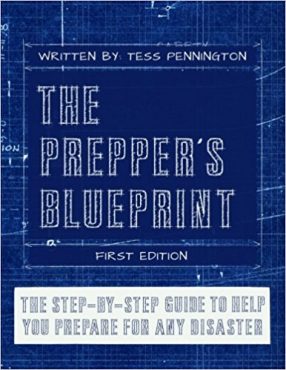
Morgan Stanley’s economists have taken to changing their forecasts for global growth to stagnation through year-end rather than a continued recovery. This is a result of “sustained escalation and incremental tariffs further slowing growth projections to the point of recession.”
Morgan Stanley also stated that even if the Federal Reserve cuts interest rates, the economy won’t be saved from a deep recession. There is simply too many bubbles and too much debt for any rate cut to help in any meaningful capacity. Morgan Stanley’s Mike Wilson, already the most bearish of Wall Street’s sell-side research analysts, turned his bearishness up a notch once more when he slashed his EPS forecast for next year, according to ZeroHedge.
Wilson summarizes his “doom and gloom” outlook as follows: “we believe an exogenous cost shock would be very hard to absorb. Autos, electrical equipment and machinery, textiles, computers/electronics, and certain chemical/commodity sectors appear the most exposed to rising tariffs on goods from China.”
https://www.shtfplan.com/headline-news/goldman-sachs-tariffs-costs-fall-entirely-on-u-s-households-businesses_05132019
Although president Donald Trump isn’t the only one to blame, he’s certainly not helping by applying tariffs to imports either.
Decades of easy money and money printing has caused so much untold damage to the economy that only a complete collapse of the entire debt-based system will reveal the true scopes of just how much carnage the central banks have caused and a rate cut won’t be able to help. The entire system is just too far gone.
https://www.shtfplan.com/headline-news/financial-crisis-the-trade-war-cost-americans-1-4-billion-per-month-last-year_03052019
Morgan Stanley also sees more downgrades to the economy as necessary because of the trade war. Not only is Wilson predicting a further decline in earnings in 2019 but also unchanged earnings in 2020. That’s a downward revised trend from a prior forecast of a +5% increase in EPS, as corporate profit hit their plateau for this cycle. And obviously, once the recession hits, it’s only downhill from there.
The basis of Wilson’s latest cut to corporate profits is a scenario analysis which assesses economic growth in three distinct paths around U.S.-China trade tensions and uses these paths to scenario test the S&P itself.
We further use the results to adjust our official S&P forecasts, though we note that since our forecasts take into account additional considerations beyond trade, our bull, base,and bear cases do not match the three trade paths one for one. Even in the absence of incremental trade escalation, our earnings model is already calling for negative EPS growth over the next 12 months and trade tensions add to the downside in earnings growth.
“Investor enthusiasm around the idea of easier Fed policy is understandable,” Wilson writes, but cautions that “if the Fed were to cut out of concern that we are entering a real unemployment cycle, such a cut should not be bought.” In other words, a Fed cut – precautionary or not – may hit as soon as July “but it may not halt [the coming] slowdown/recession,” Wilson added according to ZeroHedge.
As a result, until there is further clarity on the employment picture (which was absolutely abysmal in May), Wilson thinks “Friday’s rally should be faded and investors should continue to skew portfolios defensively with a cautious eye toward expensive growth stocks that are now at a greater risk of missing earnings estimates due to these very real macroeconomic risks that are independent of the trade outcome or monetary policy.”
On Friday, Bank of America’s CIO warned that a rate cut now would be a “huge risk” to the market as it would prompt a furious scramble for stocks. Macro data does not actually require a rate cut either, let alone three of them. As such, cuts by Jerome Powell would precipitate the next big bubble – a sentiment which was echoed just days later by One River’s Eric Peters – similar to the mistake the Fed did in 1998 which spawned the dot com bubble and the crash of 2000.










0 Comments